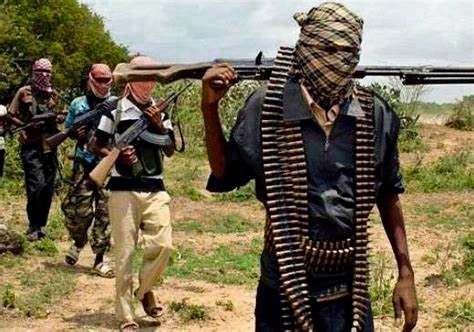Security and communication analysts say Islamic State West Africa Province insurgents will use Radio Raeed to recruit people – particularly unemployed and dissatisfied youths – to their sect.
The Islamic State West Africa Province (ISWAP) is all set to launch an illegal online radio station – Radio Raeed – in a move aimed at recruiting more people, particularly youths, to the dangerous terror sect, and at hindering counterinsurgency operations.
Zagazola Makama, a security analyst and counterinsurgency expert in the Lake Chad region, said on his X – formerly Twitter – handle that “impeccable sources” had informed him that the radio would be stationed in the Kangarwa forest in the Mobbar Local Government Area of Borno State.
He did not disclose when the station, to be called Radio Raeed, would be launched but said it would support the Islamic State with a weekly news propaganda summary to be broadcast in the Hausa, Arabic and Kanuri languages.
Makama said the development sent a strong signal to authorities that the insurgency continued to be dynamic in adopting various means of propaganda.
“The recruitment pace of the insurgency has still not been effectively halted and online media propaganda by the terror group has continued to play a key role in ensuring that it remains visible,” he said.
“Intense propaganda moves have drawn significant attention to ISWAP’s sustained presence and reach.”
Security and communication experts told RNI that the new radio station could be a major setback to counterinsurgency operations by hindering, impeding or thwarting future moves.
It was imperative for the Nigerian government to crack down on ISWAP’s plan to launch Radio Raeed because there was a “very real threat” that the station would be used to persuade and influence people to join the group if it was allowed to propagate its radical ideology and activities, they said.
Bulama Yerima, a communication specialist based in Nigeria’s northeast, a region that has been ravaged by the 14-year insurgency, said: “Radio is the most important instrument used in the dissemination of information in the Lake Chad region because it reaches a large percentage of the people, irrespective of their location; and it promotes awareness about socio-political and economic issues.
“Radio is an ideal medium to spread information. Many people, particularly in rural settings, do not have television but all of them have radios.
“ISWAP insurgents will be hoping to use the radio station to garner support and expand its supporters and followers. There’s no doubt it will use propaganda to recruit new members.”
Yerima said it was important to note that the vast majority of the population in the Lake Chad region were uneducated and uninformed citizens “and most of them are unemployed and dissatisfied youths – it will be very easy to lure them to join the dangerous sect”.
But, he said, it would be difficult for ISWAP to get its “desired result” because, although most of the locals owned radios, they did not have easy access to the internet.
“Most of the telecommunication facilities have been destroyed in the more-than-a-decade insurgency. ISWAP will find it difficult to reach prospective followers even if the online radio becomes fully operational.
“But that should not stop the government and security agencies from doing all they can to prevent the launch of the radio station.”
Yerima said ISWAP might try to target audiences in cities and larger towns because they had access to the internet.
“But those people are knowledgeable and have access to all kinds of information, so it’s unlikely that they will be drawn to support ISWAP. However, many of the youths are unemployed and discontented with their lives. They could become easy prey to ISWAP and other insurgency groups.
“The federal government needs to direct the Nigerian Communications Commission and the National Broadcasting Commission to block the establishment of the illegal radio service.”
Kachalla Grema Kyari, a security analyst based in Maiduguri, told RNI that most insurgents survived by blending in with locals, particularly in rural areas.
“By doing this, they are able to conceal their identities – and any planned moves – from counterinsurgency operatives.”
He said if ISWAP was allowed to establish a digital radio station, it would be a major setback to ongoing counterinsurgency operations across the country.
“ISWAP will use the radio service to diffuse their reckless activities, ideology, propaganda and campaigns and they will lure locals, particularly the youth, to join the sect.
“It is imperative for the Nigerian Army’s intelligence unit to investigate ISWAP’s planned radio launch and to make sure it does not succeed. If it is allowed to go ahead, the radio station will be used to broadcast contrary messages to the population. It will create confusion and use propaganda to persuade members of the public to join the sect.
“Its propaganda might resonate with youths, in particular, who do not have jobs and are dissatisfied with their circumstances. They could easily be lured to join ISWAP, which will promise them a world that they do not have now.”
Kyari said the military needed to restrategise the way it communicated with the public.
“It needs to rebuild its image and to win back the trust of the people. If it does not do this, more people will be drawn to sects like ISWAP, which uses propaganda to lure people into its web of darkness.”
SHETTIMA LAWAN MONGUNO









